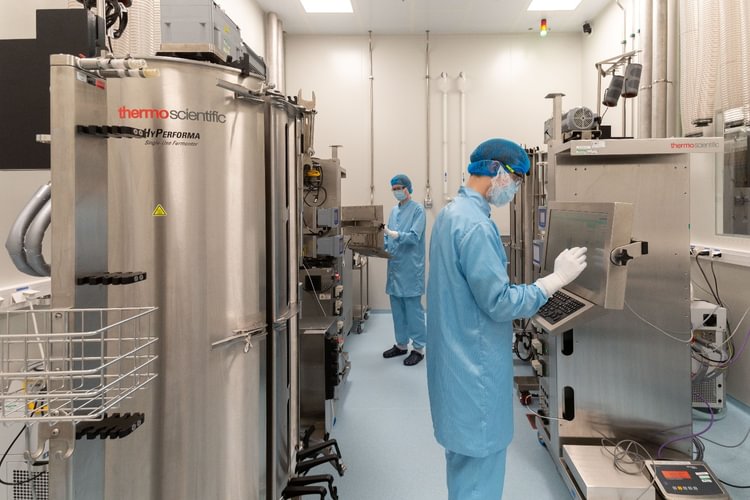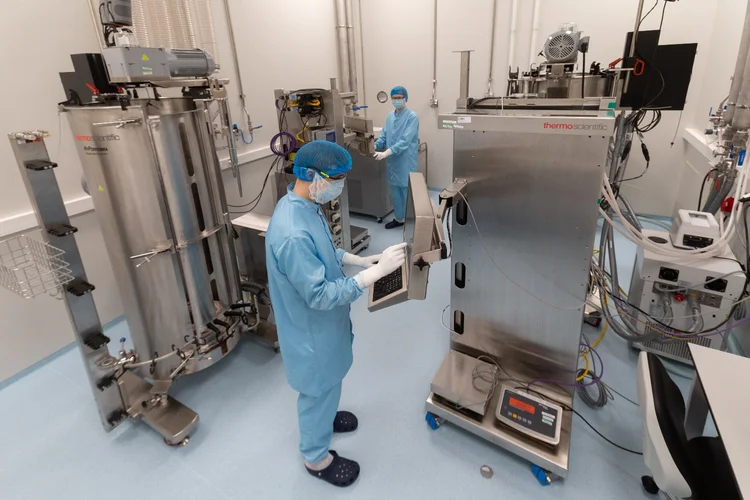Vilnius-Based Companies Unlocked Lithuanian Biotech Sector’s Record-High Growth
The latest data from Lithuanian Biotechnology Association shows that Lithuania’s biotechnology sector has increased by 87% in 2020, experiencing its fastest growth in a decade. Prompted mostly by biotech companies based in the capital Vilnius, the boom is inseparable from their work in containing the pandemic situation.
Lithuania’s biotechnology sector has reached 87% growth in 2020, according to Lithuanian Biotechnology Association. In 2020 the spurt of the sector generated almost €2B revenue and approximately 2.500 people were employed solely in the private sector. With the majority of the country’s biotechnology ecosystem located in Vilnius, the capital, its companies demonstrated noteworthy capacity to respond to the global health crises, such as COVID-19.
As indicated by Tomas Andrejauskas, President of Lithuanian Biotechnology Association, COVID-19 has not affected the sector, on the contrary—many biotech companies helped to contain the pandemic situation, and some of them started producing new products, testing kits, and even vaccine components. Thierry Breton, European Commissioner for Internal Market, who has recently visited Lithuania, also commented on Lithuanian biotech sector’s preparation to implement large-scale projects, such as production of COVID-19 vaccines.
Pandemic containment solutions initiated in Vilnius-based biotech companies
Thermo Fisher Scientific Baltics, a U.S. biotech giant with a branch in Vilnius, have started massively producing the reagents for COVID-19 testing which has significantly fostered the company’s growth. In 2021 the company opened a new production building to increase the manufacture and supply of reagents to companies developing mRNA-based vaccines and therapies, including COVID-19 vaccines.
Northway Biotech is another company operating in Lithuania’s capital that has been named among the candidates for vaccine manufacturing. The company, which has increased its profit by more than 30% in 2020, confirmed it could produce the active substance of vaccines in a year, at the earliest, but would need to cooperate with bottling companies. Northway Biotech has caught the huge national interest after announcing that its anti-coronavirus drug, created through collaboration with Swiss partners, is now in clinical trials.
Significant steps towards creating pandemic solutions have also been taken by Vilnius-based company Imunodiagnostika UAB that have launched the first Lithuanian SARS-CoV-2 antibody test kit with antigen produced by Baltymas UAB.
Government declares biotech as priority sector
According to Remigijus Šimašius, Mayor of Vilnius, the city gives credit to all companies that have contributed to COVID-19 solutions, and believes the talents in this field, as well as the whole ecosystem, are prepared to continue dealing with the pandemic aftermath.
“Companies based in Vilnius have been taking the lead in seeking quality solutions for the current pandemic issues, and this proves our ecosystem is not only resilient, but also capable of responding to global health emergencies,” said Mr Šimašius. “Biotech companies that have chosen the city for their operation also encourage further biotech sector’s expansion within the country.”
Life sciences is a strategic priority not only on a municipal, but the national level as well. While the biotechnology sector currently contributes around 2.5% to Lithuania’s gross domestic product (GDP), the government has a goal to increase the share of life sciences to 5% by 2030.


